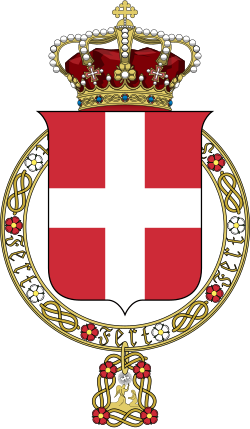Salandra II government | |
|---|---|
| 50th Cabinet of Italy | |
 | |
| Date formed | 5 November 1914 |
| Date dissolved | 18 June 1916 |
| People and organisations | |
| Head of state | Victor Emmanuel III |
| Head of government | Antonio Salandra |
| Total no. of members | 13 |
| Member party | PL, PRI |
| History | |
| Predecessor | Salandra I Cabinet |
| Successor | Boselli Cabinet |
The Salandra II government of Italy held office from 5 November 1914 until 18 June 1916, a total of 591 days, or 1 year, 7 months and 13 days. [1]
